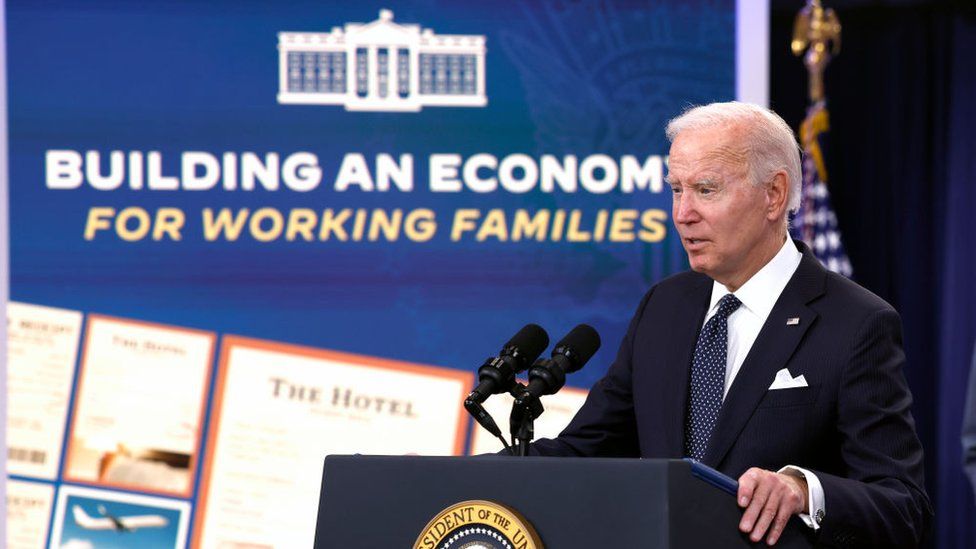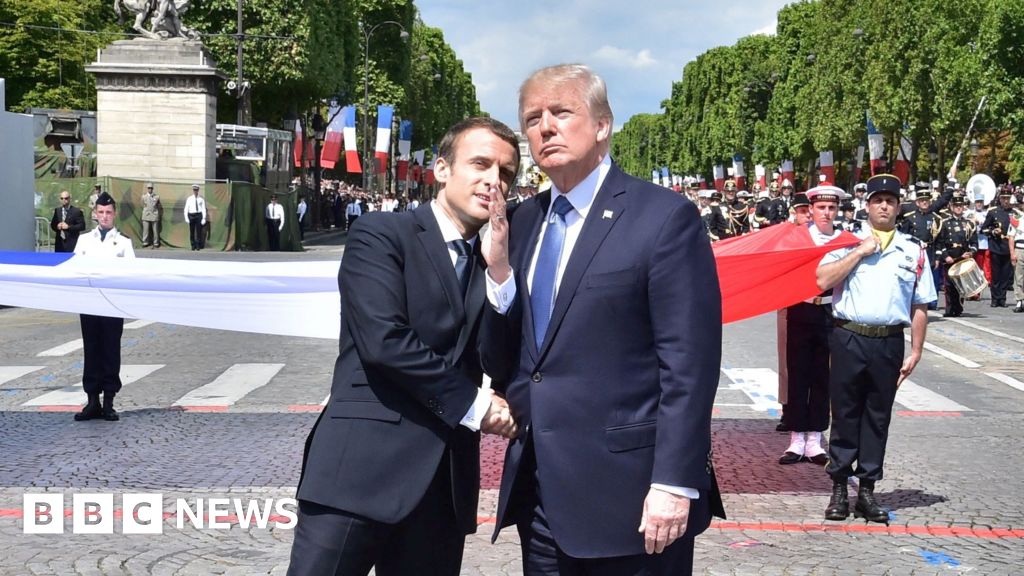ARTICLE AD BOX
 Image source, Getty Images
Image source, Getty Images
By Sam Cabral
BBC News, Washington
President Joe Biden said Americans are "being played for suckers" by airlines, banks and other service providers in this week's State of the Union speech.
He said so-called "junk fees" are hurting families' budgets and causing significant financial harm.
His administration is leading a crackdown on these charges as part of its efforts to promote competition in the US economy.
But what are junk fees and can the government really tamp down on them?
What are junk fees?
Junk fees are hidden and unexpected charges that are often not included in the initial or listed price of a transaction but are added on at the time of the payment.
The Biden White House claims this fee practice typically falls into four categories:
- "Mandatory fees" that obscure the full price charged by a seller, such as the service fees added to a concert ticket
- "Surprise fees" that consumers do not expect, such as the family seating fees charged by airlines
- "Predatory fees" that target consumers who are economically vulnerable or locked into a service, such as excessive bank overdraft fees
- "Fraudulent fees" that represent an outright misrepresentation by a seller, such as "no fee" bank accounts that make hidden charges in practice
At least 85% of Americans have encountered such fees, according to a 2019 survey by Consumer Reports, and they can drive up costs far beyond what a consumer had expected to pay.
The White House has said these fees schemes disproportionately affect low-income households and people of colour, and harm small and medium-sized businesses.
What is Biden doing about junk fees?
The president is urging Congress to pass a Junk Free Prevention Act, which would specifically reduce or eliminate four types of junk fees:
- Service charges, processing fees and other additional costs tacked on to the online ticket sales for concerts, sporting events and other entertainment
- Airline booking fees for family seating
- Early termination fees for mobile phone, wireless and cable TV services
- Resort fees or destination fees charged at the end of online hotel reservations
"Junk fees may not matter to the very wealthy, but they matter to most other folks," Mr Biden said on Tuesday. "They add up to hundreds of dollars a month."
"I know how unfair it feels when a company overcharges you and gets away with it. Not anymore."
At least three federal agencies have also taken action over the past two years to reduce junk fees and increase transparency.
That includes the Consumer Financial Protection Bureau, which has ramped up its oversight of surprise overdraft and depositor fees charged by banks. The Center for Responsible Lending has hailed the move as "a big step" in highlighting the harms of charges that "wreak havoc on household budgets".
Why does this matter now?
The growing crackdown comes following a series of high-profile debacles involving concert and airline tickets.
Most notably, Ticketmaster drew the ire of Taylor Swift fans after sales for her upcoming US tour descended into chaos late last year, with high demand for tickets leading to widespread site disruptions and the premature cancellation of sales.
Consumer rights advocates have said the company - which controls 70% of the ticketing and live event venues market - uses its market dominance to artificially inflate ticket costs with fees and service charges.
"No one has ever felt that a 'convenience fee' was convenient," Federal Trade Commission Chair Lina Khan said in October. "Companies should compete to provide the best quality at the best price, not to see who can squeeze the most added expenses out of consumers."
Under the Biden administration, Ms Khan's agency has been exploring whether it needs to regulate the spread of junk fees to better protect consumers. It is currently seeking comment from members of the public - and more than 12,000 Americans have weighed in.
"I mean, do we need more evidence than the Taylor Swift fiasco?" wrote one.
Another wrote: "If services like Ticketmaster must have service fees, my ask is that they be included in the primary advertised cost."
But not everybody is enthused.
"The president's use of the term 'junk fee' is overly broad," said Jim Nussle, president and CEO of the Credit Union National Association, a trade group for the credit union industry.
He argued in favour of protecting bank overdraft protections, which he claimed is only offered as an opt-in service and acts as "a safety net" for low-income and middle-income consumers.
"Without the option of overdraft protection - people are more likely to turn to predatory lenders, hurting the same people the administration seeks to help."
Douglas Holtz-Eakin, president of the right-leaning American Action Forum thinktank, told the BBC that Mr Biden's "non-serious proposals" are akin to "waving a red flag at the populist public".
He added: "The things they're calling junk fees have been approved by their regulators, who [sic] Biden appointed."

 2 years ago
59
2 years ago
59








 English (US) ·
English (US) ·